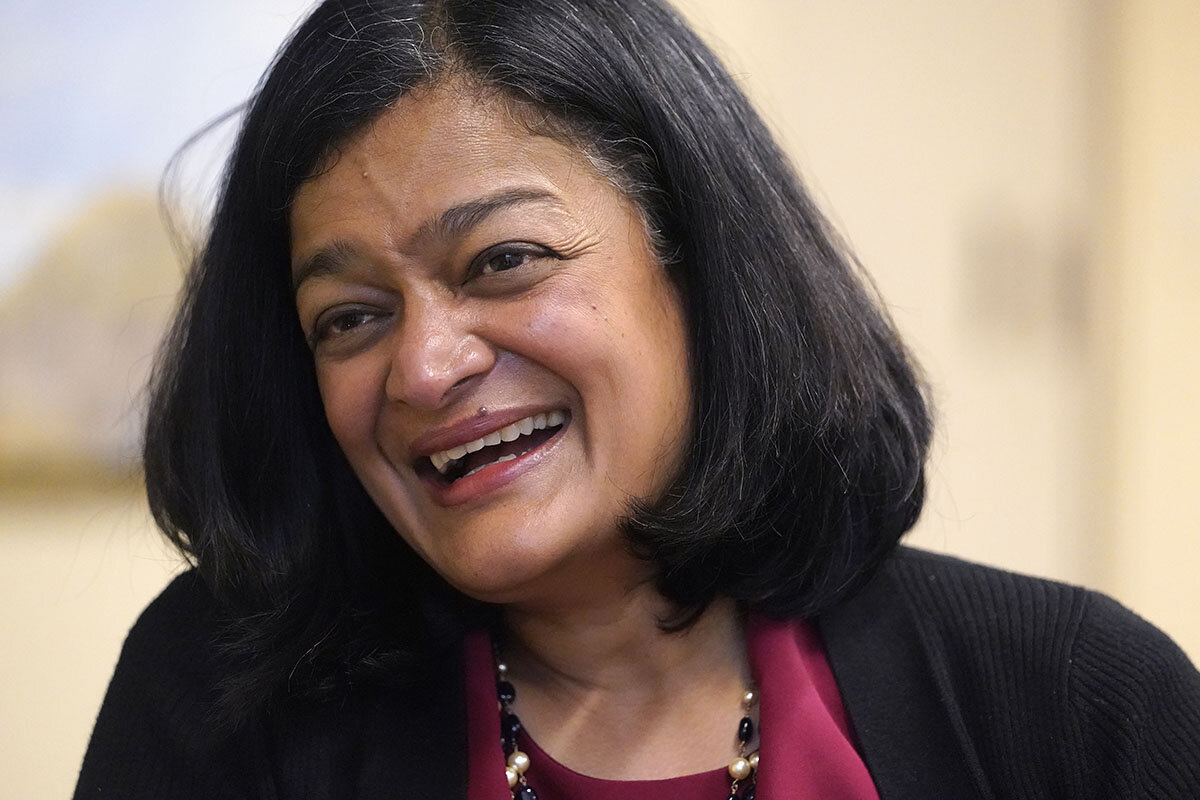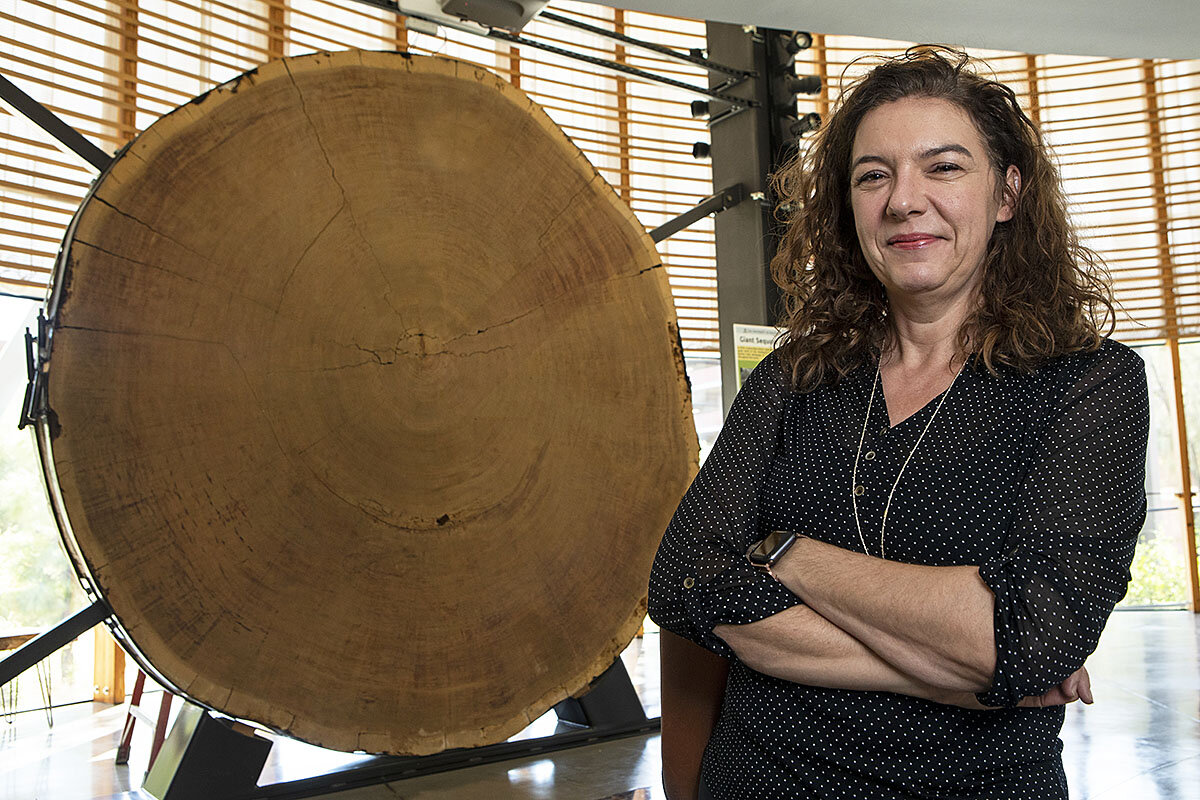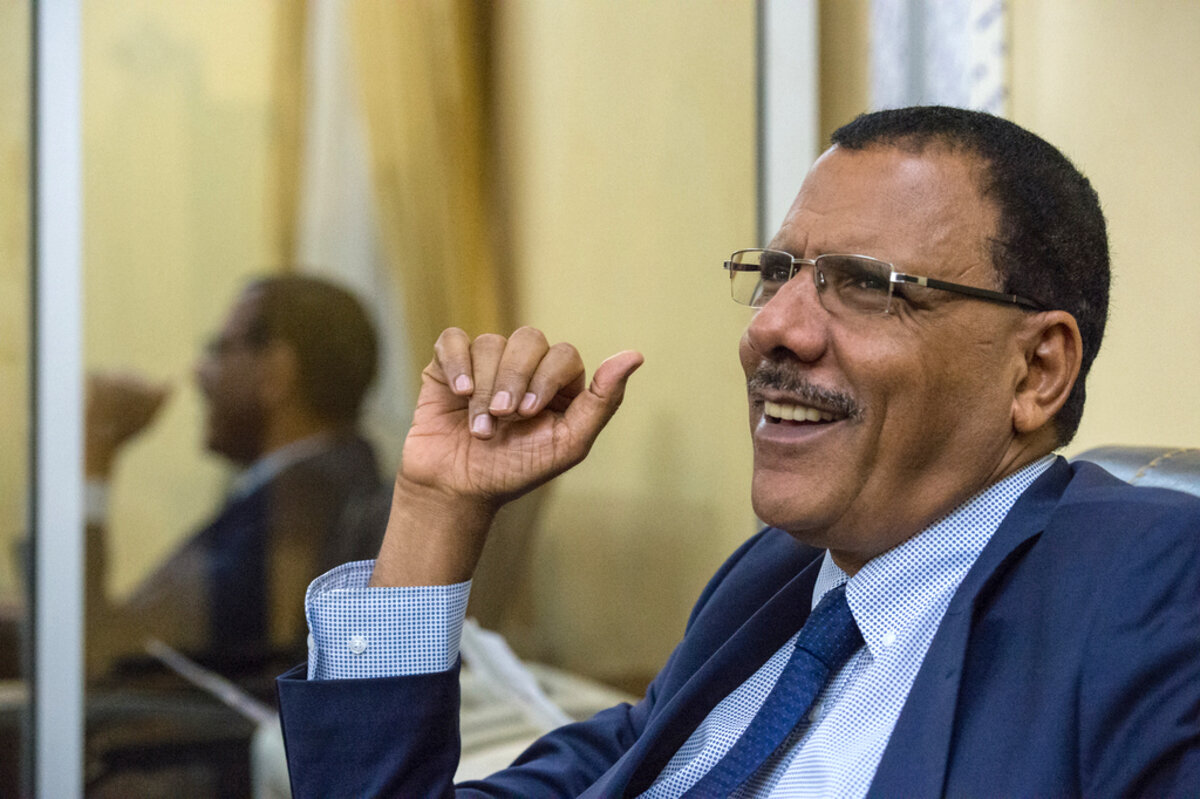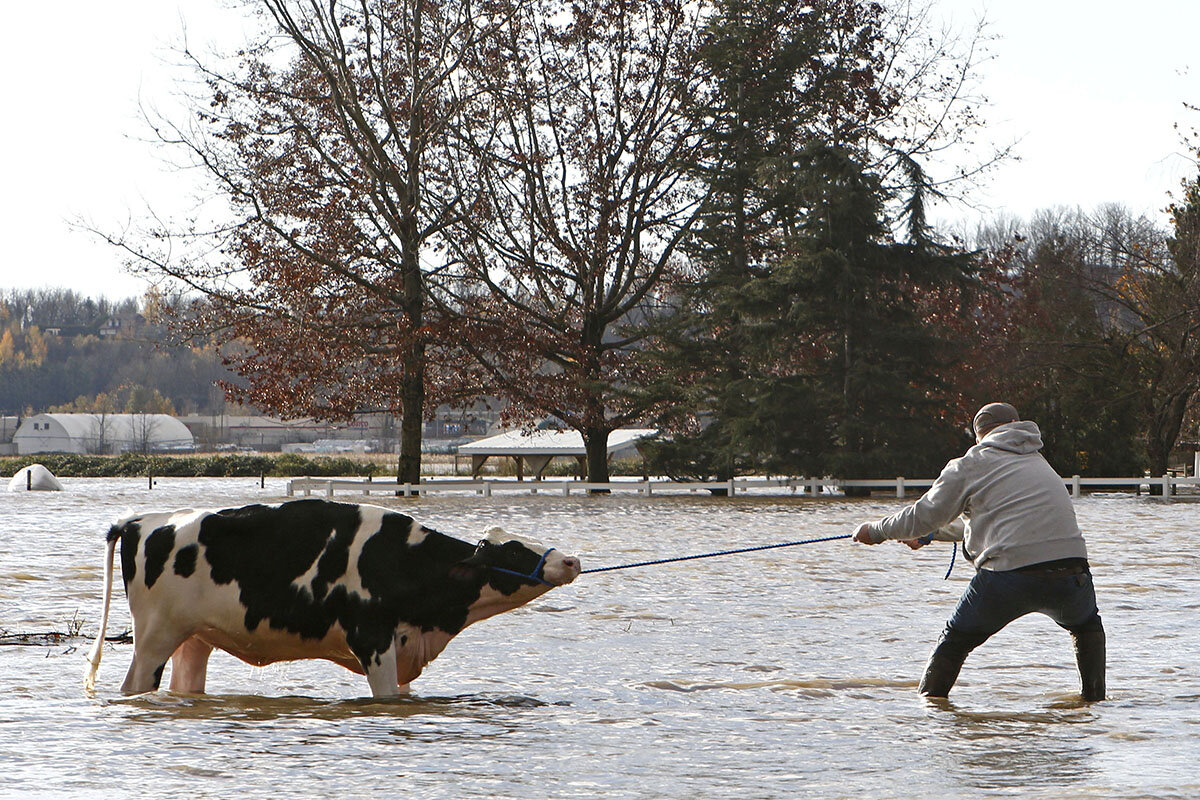At the hinge of history – and President Biden’s Build Back Better legislation – is Rep. Pramila Jayapal of Washington. She’s a champion of progressive priorities who, our reporter finds, is described as not the type to bow to Democratic Party authority, seniority, or the status quo.
Monitor Daily Podcast
- Follow us:
- Apple Podcasts
- Spotify
- RSS Feed
- Download
 David Clark Scott
David Clark Scott
For a long time, the football team at the California School for the Deaf, Riverside, was a perennial loser. For seven straight years, they struggled. Opponents would often harass them over their hearing loss, too.
Until now.
This season the Southern California high school team is undefeated. Yes, these are superb athletes, but that’s only part of the story. Football often relies on audible elements. In fact, when a quarterback changes a play at the last minute based on the opponent’s defense, it’s called an “audible.” The QB yells a code word or numbers to describe the new play to teammates. There are also verbal cues to tell the center when to hike the ball. The Seattle Seahawks fans have twice set world records for crowd noise, preventing opposing teams from hearing signals.
But this all-deaf team has remade the game to fit its strengths, communicating swiftly and effectively via hand signals. No huddle needed. “I would say be careful in thinking that you have an advantage,” coach Aaron Williams of Desert Christian High School told The New York Times after a lopsided loss to the Riverside Cubs last week. “They communicate better than any team I have ever coached against.”
On Friday, the Cubs play in the semifinals of the Southern California division championship. But win or lose, they’ve taken what many would consider an obstacle and turned it into a steppingstone to success. You might say they’re already champions.










